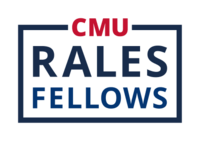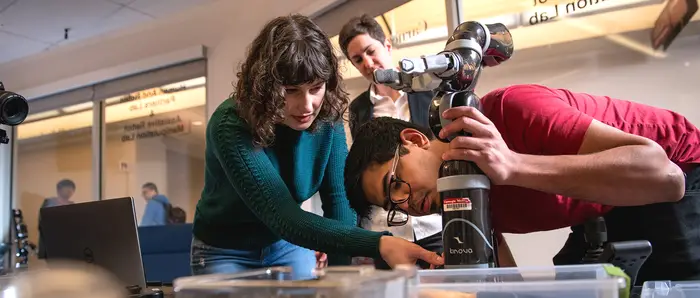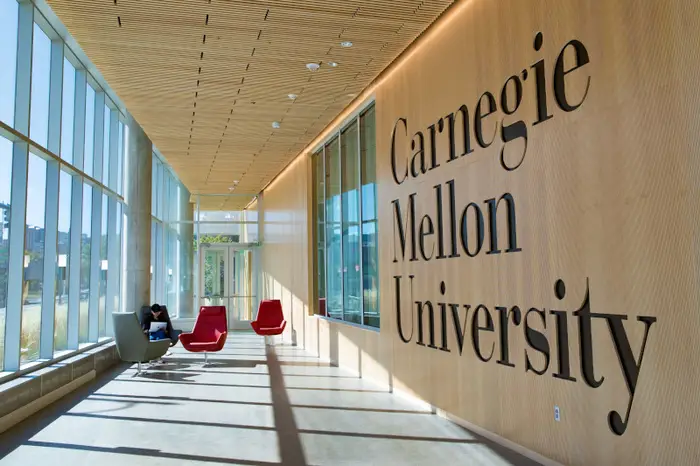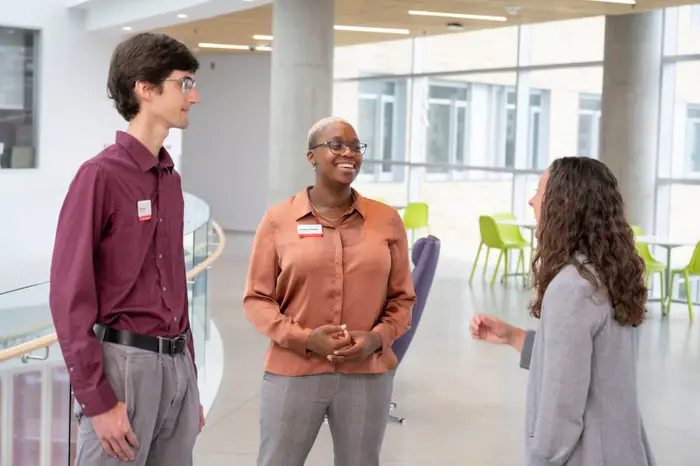CMU Rales Fellows Program
A Next Generation STEM Vision
The Carnegie Mellon University Rales Fellows Program is dedicated to cultivating the next generation of STEM leaders and drive innovation by increasing access to a life-changing graduate education. By removing financial barriers to obtaining advanced degrees and providing Fellows with holistic support, the Rales Fellows Program empowers and connects scholars with others who share a passion for progress and innovation.
The CMU Rales Fellows Program provides graduate students with full tuition as well as a stipend to cover living expenses such as housing and health insurance. Fellows also benefit from an ecosystem of holistic opportunities to ensure their success as they work to develop into future STEM leaders, including comprehensive, cohort-based onboarding, dedicated career services, faculty mentoring, networking programs, and opportunities to build leadership skills in local and global communities.
The program was made possible through the generosity of the Norman R. and Ruth Rales Foundation.
2026 Candidacy Application
While the priority deadline for candidacy application submission has passed, the program is still accepting applications and will review them on a case-by-case basis.
What is the Rales Fellows Program?
Attracting and equipping an exceptional community of STEM leaders has never been more important to our nation's economic prosperity, global competitiveness and security. That's why the CMU Rales Fellows Program was created: to empower and connect scholars with others who share the same passion, and to advance the next generation of STEM leaders.
Rales Fellows: Where Exceptional is the Rule
Carnegie Mellon University was built upon the belief that education can create a new and better future for all humankind. Poised at the intersection of technology and humanity, we've always been the place where groundbreakers and risk takers grow and thrive.
There is no "type" of Rales Fellow. We seek out every kind of extraordinary.
Our program focuses on exceptional students in STEM fields. Through leadership, determination and innovation, Rales Fellows aspire to work toward advancements in the sciences that will further human progress.
Exceptional Scholars
We welcome all definitions of “exceptional,” whether demonstrated through your achievements, your character or your tendency to uplift those around you.
Creative Innovators
Creativity knows no bounds at Carnegie Mellon, and here interdisciplinary advancements are fostered and encouraged.
Inclusivity Advocates
We believe the biggest breakthroughs are shaped by leaders who represent all perspectives and origins.
Effective Collaborators
Innovation cannot be achieved in silos, and the best ideas are often the result of several minds working together.
Purpose-Driven Leaders
Forging the way of progress takes strength and fortitude, with an unwavering commitment to further clear the path for others to follow.
In Good Company
CMU graduates find careers with global industry leaders like NVIDIA, Meta, Apple, Uber, Amazon, Microsoft, Google, Bloomberg and Boeing*.
* Reported first-destination outcomes of Rales-eligible master’s programs. Source: CMU Career and Professional Development Center, 2023
Reported Salaries of Rales-Eligible Programs*
$121,277
Average Salary
$125,000
Median Salary
*Reported first-destination outcomes of Rales-eligible master’s programs, based on 1,040 responses. Source: CMU Career and Professional Development Center, 2023



